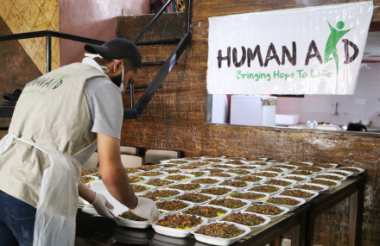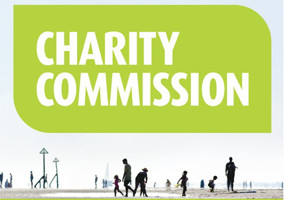Human Aid UK, a charity that operates in areas of the Middle East, says it plans to take legal action against border police because it has been placed under “undue scrutiny”.
In July representatives from the charity, who were on their way to Gaza to deliver aid, were stopped at Heathrow Airport by border police under powers contained within schedule 7 of the Terrorism Act 2000. Money they were carrying was seized and the following month the Charity Commission opened a statutory inquiry.
The charity says that a day before representatives were stopped, the Commission had visited its offices and discussed procedures for carrying cash. The Commission has previously issued public statements discouraging charities from transporting large quantities of cash.
In a statement, Nur Choudhury, UK chair of Human Aid, said: “Human Aid UK is a humanitarian charity specialised in assisting victims in war-torn regions. The restrictions and pressures of delivering aid to such zones can on occasion require the use of cash to purchase materials, resources or medicine.
“There are perfectly lawful provisions for the management of such processes. To assist charities in doing so, the Commission has robust procedures which we follow closely.
“Excessive use of force by police and border agencies, symptomatic of the disproportionate harassment Muslim charities face, has led to the unnecessary disruption of our work and lifesaving aid missions we send out. Our legal team is in communication with the police and we expect to retrieve the seized funds very soon.”
‘Stop made me feel violated’
Speaking about the experience of being stopped by counter terrorism officers, Sohidul Islam, operations director of Human Aid UK, said: “The schedule 7 stop made me feel violated. I went on this aid delegation to help the besieged women and children of Gaza, I am innocent yet I was treated like a criminal, which left me wondering why.
“I was held for six hours, asked several questions, and had my fingerprints and DNA samples taken. Additionally, I was photographed from all angles like it was a police station mug shot.
“Despite this criminal treatment, we were then free to travel as of course we were innocent and had done nothing wrong. The six-hour delay resulted in us missing our flight.”
A spokesperson for the Home Office said the police investigation into Human Aid is ongoing and that it therefore would not be appropriate to comment further on the case. However, on the use of schedule 7 powers, it said:
“The use of schedule 7 is vital to the police in their work to combat terrorism.
“The decision to examine an individual using schedule 7 is operational, undertaken independently by police, and arbitrary or discriminatory use of the powers is prohibited.
“Large amounts of cash being taken in or out of the country for which a legitimate origin cannot be found are liable to be seized by Police or Border Force under powers in the Proceeds of Crime Act 2002.”
Harassment of Muslim charities
The charity said this is part of a “larger pattern of harassment of Muslim charities”, and highlighted issues around bank accounts being closed and negative portrayal in the media.
It complained that the Charity Commission had taken years to complete a previous statutory inquiry involving the charity, which “resulted in a significant financial loss to the charity and disrupted our life-saving services and provisions”.
The Commission opened a statutory inquiry into Human Aid UK in 2014. It published an inquiry report in 2017 which said representatives for the charity had been conducting unlicensed street collections.
The inquiry concluded that “there was no evidence of misapplication of charity funds. However, there was an overall lack of adequate documentation to evidence the charity’s due diligence and monitoring of the end use of all the charity’s funds”, and issued an order directing the charity to improve its processes.
The Charity Commission confirmed that it has opened a new statutory inquiry and that it will publish details of the scope of the investigation “shortly”.
A spokesperson said: “We assess all concerns about charities against a clear regulatory and risk framework; where those assessments give rise to further concerns, we look into them in line with our usual processes. We strongly reject any suggestion of bias in our investigative work.
“We publish transparency data about our inquiry work, and are clear that our investigations do not focus on any specific religious classification.”
Editor's note: An early version of this story referred to a 2010 investigation into Muslim Aid. This is a different charity to Human Aid.
|
Related articles












